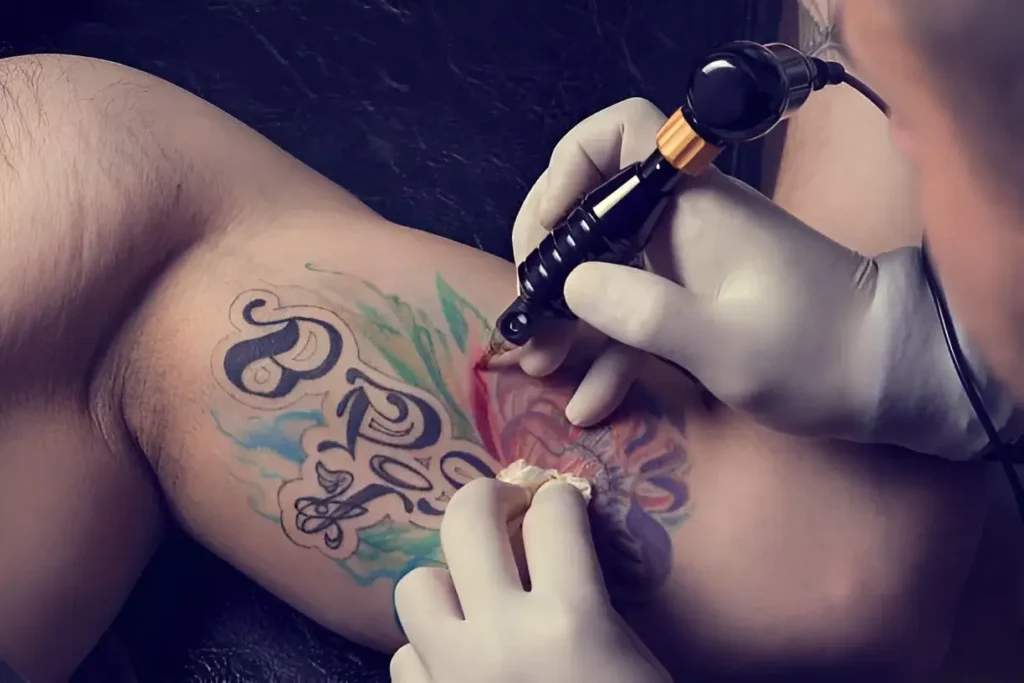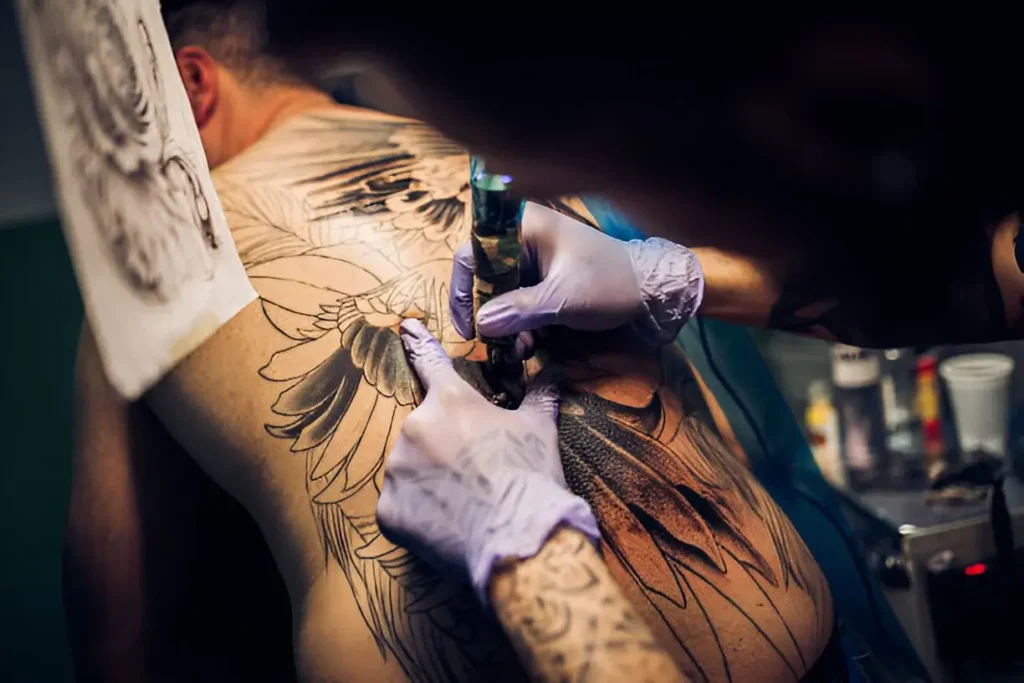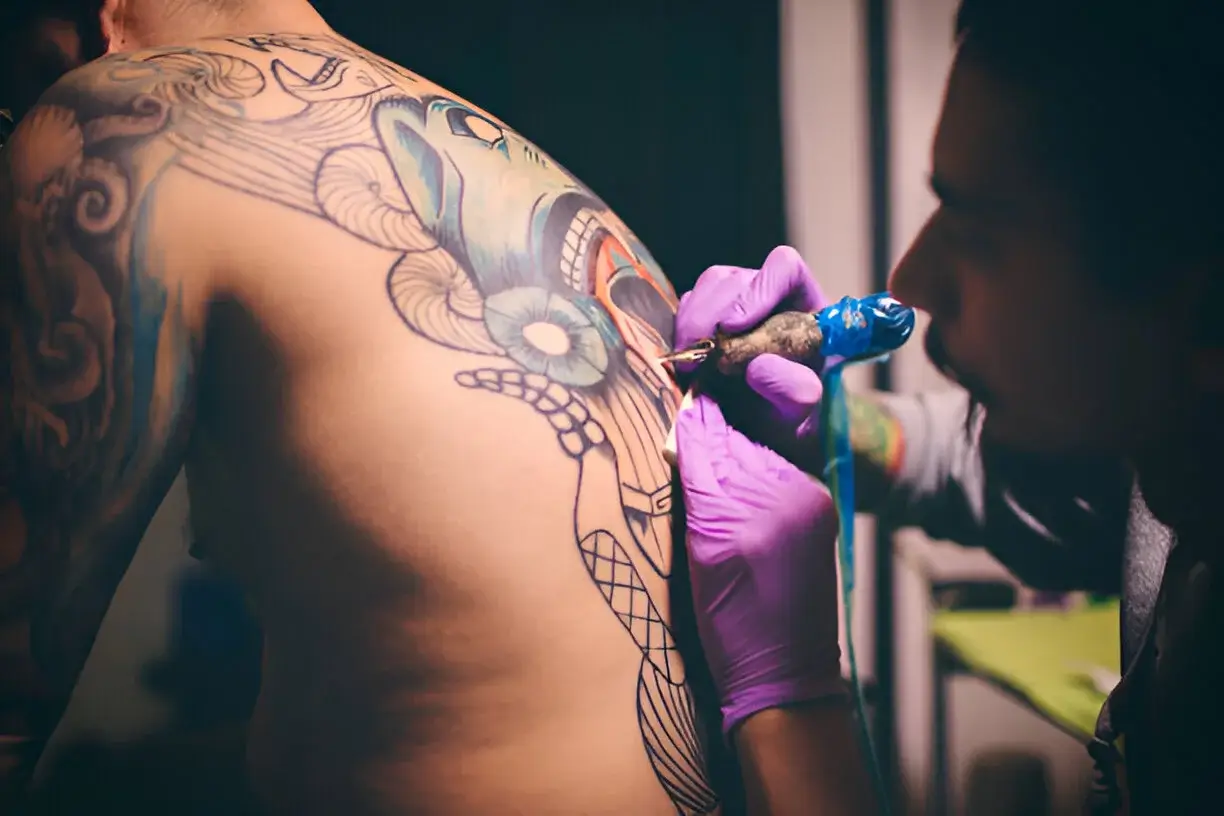Millions of people have tattoos and more than 90% say it was part of the healing process. You can get tattooed as a way to express yourself or as a memorial tattoo in memory of a loved one. It doesn’t matter. It is a great way to come up with any kind of challenge, accept or express yourself. However, tattoos are now being explored for their possible healing properties on top of their aesthetic and cultural importance. Can ink on the skin help a person heal? Let’s dive in and find out Inks Positive Impact on Individuals’ Lives.
The History of Tattoos and Healing
Tattooing is a thousands of years old practice. In different old cultures including Polynesians, Egyptians, and Native Americans do not use tattoos just for decoration. It is also used for spiritual and therapeutic purposes. It was once believed that tattoos warded off evil spirits, brought good fortune, and even cured physical ailments. In the past, tattoos were viewed basically as body art, but in the present day, they are viewed as much more than that.
Modern Perceptions of Tattoos
In the recently advanced modern world, tattoos have passed important changes in social perception. The tattoo has gone mainstream, with people from all walks of life embracing the practice, once connected with rebellion and suspicion. In light of this turn, tattoos are being explored for their deeper implications, such as their possible healing and well-being tools.
Psychological Advantages of Tattoos
One of the very captivating reasons for people to get tattoos is the psychological advantages. Because meaningful tattoos give hope and the power to survive in challenging moments. Personal empowerment can be gained from tattoos, which enable individuals to control their bodies and the way they present themselves. By expressing oneself in this way, an individual can boost confidence and self-esteem, which can cause a sense of well-being. There are many tattoo facts that you don’t know about it.

Tattoos as a Form of Therapy
According to past cultures and recent times, tattoos can also work as a form of art therapy or you could say that ink therapy. It is very similar to how painting or drawing can help people to implement their emotions and experiences, also getting a tattoo can be a cathartic experience. The use of tattooing as an expressive tool or for healing from trauma is even incorporated into some therapists’ practices.
Healing from Trauma through Tattoos
Many trauma survivors use tattoos as a way to reclaim their bodies and tell their stories. Tattoos can cover physical scars, changing them into something pretty and meaningful. Further, tattoos can give survivors a sense of control and closure, along with empowering them.
Tattoos and Mental Health
In recent years, a growing body of research has explored the relationship between tattoos and mental health. A lot of studies have found that tattoos can have a positive impact on mental health because they help you to reduce stress, depression and anxiety. In part, this is because tattoos provide a sense of identity and self-expression, and they also provide communities that support tattoos.
The Role of Tattoos in Body Image
Tattoos can play a key role in encouraging body positivity and acceptance. The art of tattooing can be an excellent and effective way for individuals to develop a positive relationship with their bodies. Tattoos can help you to cover scars, birthmarks, or other features that individuals may feel self-conscious about, changing them into unique and elegant art.
Physical Healing and Tattoos
The basic concentration of tattoos is often on psychological and emotional healing, but also some physical aspects that you need to consider. Tattooing medical scars, for example, is a common procedure used to cover scars caused by surgeries or injuries, allowing individuals to feel more self-confident and less self-conscious. There are also medical uses for some tattooing techniques, such as micro pigmentation for vitiligo and areola restoration after breast surgery.
Art Therapy
Creating and getting tattoos can be a therapeutic process. The tattooing process is similar to traditional forms of art therapy in allowing individuals to express their emotions. Moreover, tattooing has a formalistic aspect that can facilitate the healing process for individuals, helping them cope with their complicated feelings and experiences.

Getting a tattoo requires concentration and presence, which works as a form of meditation for an individual. It helps you to protect yourself from anxiety and stress temporarily. Additionally, collaborating with a tattoo artist to create a piece that represents personal emotions can be incredibly validating and healing.
Community and Support
The act of getting a tattoo can also foster a sense of community and support. It is common for individuals to form strong bonds based on their shared experiences and stories associated with tattoos. It is possible to experience a greater sense of connection with others through tattoo communities, making people feel less alone in their struggles.
Spiritual Healing through Tattoos
For plenty of people, tattoos have a deep spiritual importance. It can help you heal spiritually, connecting individuals with their rituals and beliefs. It doesn’t matter whether it represents faith, a tribute to a loved one, or a representation of a personal journey, spiritual tattoos can bring comfort and meaning to your life.
Challenges and Misconceptions
It is still important to note that tattoos are not without their challenges and misconceptions. There are still stigmas and stereotypes surrounding tattoos, and many people do not comprehend their healing potential. Tattooing also poses health risks, including tattoo infections and allergic reactions. The risks associated with tattooing can be minimized by choosing a reputable tattoo artist. Low-quality ink can also cause of faster tattoo fading and skin infections.
Caring for Healing Tattoos
You need a proper tattoo aftercare. It is very important to make sure that healing tattoos perfectly fulfill their purpose. You will need to follow a professional tattoo artist-given aftercare guide because it can stop infections and ensure that the tattoo heals perfectly. Long-term tattoos should shine and be maintained, including avoiding too much sun, protecting it from infection, and keeping your skin moisturized. It is also important to protect the tattoo’s meaning and appearance.
FAQs
Do tattoos have proven health benefits?
There is some evidence that tattoos can be beneficial to mental health and well-being, although more research is needed. To ensure that tattooing meets your expectations, select designs that are meaningful to you and keep realistic expectations.
Can tattoos help with grief and loss?
There is no doubt that memorial tattoos help many people cope with loss and grief.
Having tattoos made in memory of loved ones is a great way to commemorate them, and can provide comfort and a sense of connection.
Are there risks associated with healing tattoos?
Healing tattoos are no different from other tattoos in that they can be infected or provoke allergic reactions. You can reduce these risks by picking an experienced tattoo artist and following proper aftercare instructions.
How do I choose a tattoo for healing purposes?
Make it a point to choose a design that is meaningful to you personally. By working with an experienced tattoo artist, you can refine your ideas and make sure the design complies with your healing goals.
Final Thoughts
Tattoos are not only body art, they have the power to heal and change lives. It can enhance mental health and self-esteem, cover physical and medical scars, offer you spiritual comfort, and tattoos offer a creative way to heal both inside and outside. There are challenges and misconceptions about tattoos, but there can be no doubt about their positive effect on healing. It is only a matter of time before tattoos are used more and more to heal people as society continues to embrace the art of tattooing.


14 thoughts on “Ink’s Positive Impact: Can Tattoos Help Heal Spiritually?”